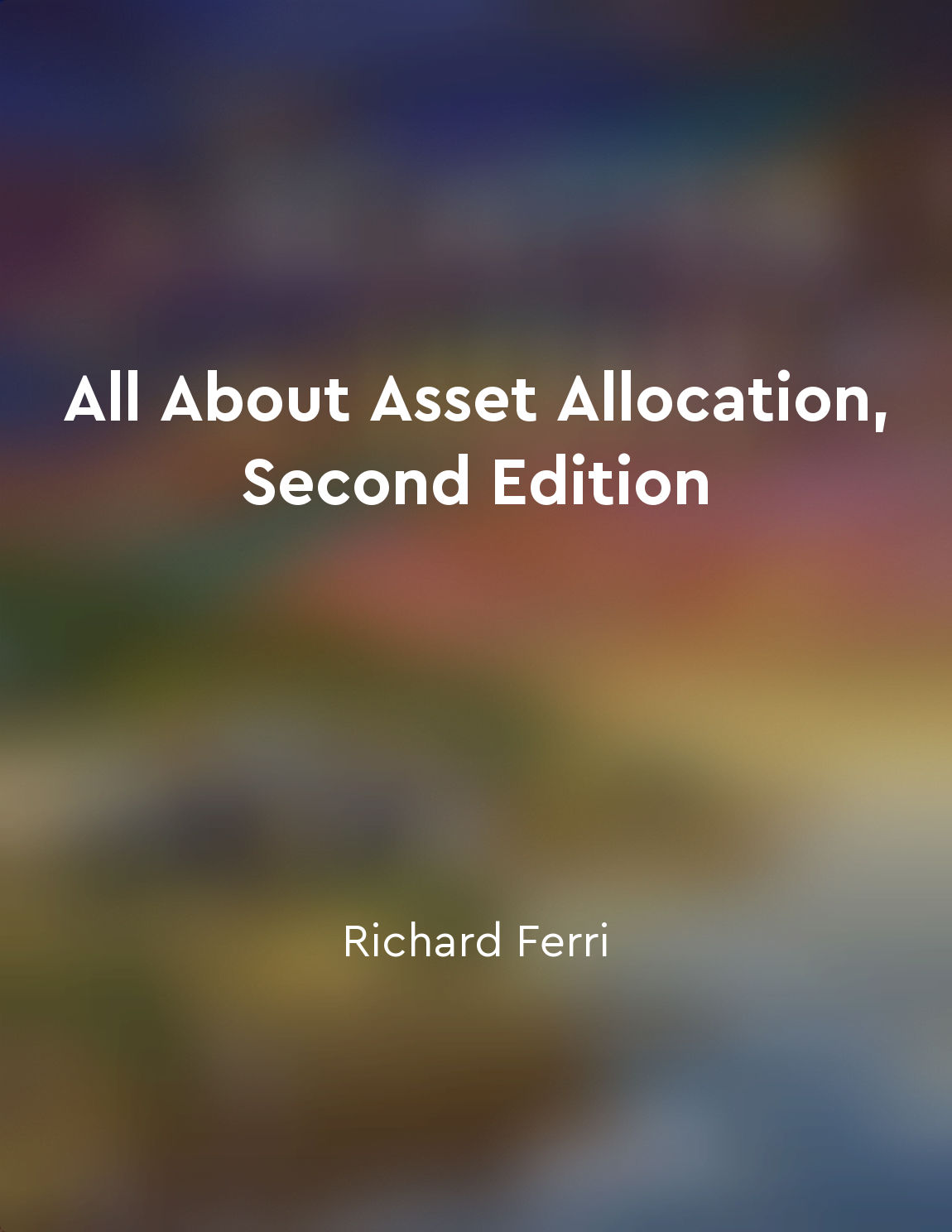Types of mutual funds from "summary" of Let's Talk Mutual Funds by Monika Halan
Mutual funds are a pool of money collected from a large number of investors with a common investment objective. These funds are managed by professional managers who invest the money in various asset classes such as stocks, bonds, and other securities. Mutual funds are classified into different types based on their investment objective, structure, and asset allocation. One of the most common types of mutual funds is equity funds. These funds primarily invest in stocks of companies listed on the stock exchanges. Equity funds are suitable for investors looking for long-term capital appreciation. They can be further classified into large-cap, mid-cap, and small-cap funds based on the market capitalization of the companies they invest in. Another type of mutual fund is debt funds. These funds invest in fixed-income securities such as government bonds, corporate bonds, and money market instruments. Debt funds are suitable for investors looking for regular income and capital preservation. They are less risky compared to equity funds but offer lower returns. Hybrid funds, also known as balanced funds, invest in a mix of equity and debt instruments. These funds provide investors with a diversified portfolio that offers the potential for capital appreciation as well as regular income. Hybrid funds are suitable for investors looking for a balanced approach to investing. Index funds are another type of mutual fund that aims to replicate the performance of a specific market index such as the Nifty 50 or the Sensex. These funds have lower expense ratios compared to actively managed funds as they require minimal intervention from fund managers. Index funds are suitable for investors looking to passively invest in the market. Exchange-traded funds (ETFs) are a type of mutual fund that trade on stock exchanges like individual stocks. ETFs combine the features of mutual funds and stocks, offering investors the flexibility to buy and sell units throughout the trading day. ETFs are suitable for investors looking for liquidity and diversification in their portfolio. Understanding the different types of mutual funds can help investors make informed decisions based on their financial goals, risk tolerance, and investment horizon. It is essential to evaluate the performance, fees, and risks associated with each type of mutual fund before making an investment decision. By diversifying across different types of mutual funds, investors can build a well-balanced portfolio that meets their investment objectives.Similar Posts
Rebalance your portfolio regularly to maintain your desired asset allocation
To maintain the desired allocation, investors need to periodically rebalance their portfolios. This means selling assets that h...
Start investing early for longterm financial security
Investing early is like planting a money tree. The earlier you start, the more time your money has to grow. This simple concept...
Invest in assets that appreciate over time
When it comes to building wealth, one of the most crucial principles to keep in mind is the idea of investing in assets that ha...
Negotiate for better deals
When it comes to saving money, one of the most powerful tools in your financial toolbox is the ability to negotiate for better ...

Network and build relationships
To truly succeed in the world of business and finance, it is essential to understand the importance of connecting with others. ...

Never stop learning and growing as an investor
As an investor, it is important to always be open to learning new things and growing your knowledge in the field of investing. ...
Stay committed to your financial journey, despite obstacles
It is crucial to maintain your dedication to your financial journey, even when faced with challenges that may seem insurmountab...

Network with successful individuals for mentorship
One of the most powerful tools in your arsenal for achieving financial success is the ability to network with successful indivi...

Keep expenses low
Keeping expenses low is a crucial aspect of achieving financial independence. By minimizing your expenses, you are able to save...

Asset allocation should be customized to individual needs and goals
Asset allocation is a crucial component of any investment strategy. It involves dividing an investment portfolio among differen...
